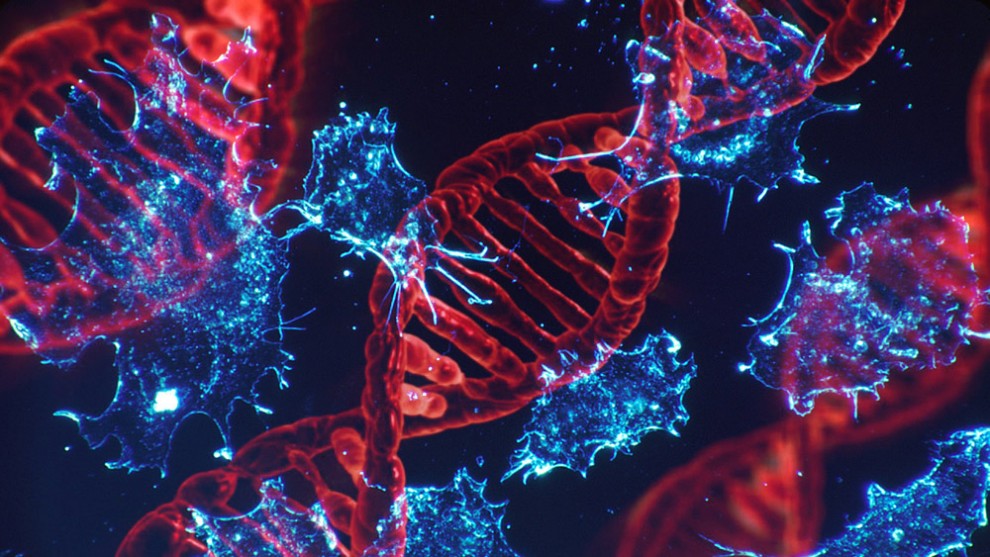10-Minute Universal Cancer Test
With all of the technology available to science, sometimes it can take days for a test to reveal if you have cancer or not. Sometimes, the cancer can be detected easily, but other tests can take much longer.
For example, my daughter has a rare condition that causes multiple tumors to form. Some can be cancerous while most are not. She recently had a growth removed from her ovary. The surgeon said he didn’t believe it was cancerous, but had to send it off for testing to be sure. It was several days before she finally found out that the tumor was not cancerous.
In another incident with my daughter, she had to wait several months after a tumor was removed to find out whether it was cancerous or not. During the wait, the doctor put her on anti-cancer drugs. The tumor turned out to be benign, but the months of anti-cancer drugs ate away almost all of the cartilage in her knees and some of it in here ankles, making it painful to walk.
I know one woman who, after undergoing a mammogram screening (my wife refers to this test as a mammo-screaming because of how much it hurts), learned that she had a lump in her breast that could be cancer. Several days later, a doctor did a needle biopsy of the lump. Then it took more days before she heard that the needle biopsy confirmed that the lump in her breast was indeed cancer. She ended up having a mastectomy followed by chemotherapy that made her sicker than she had ever been in her life.
All toll, it was over 2 weeks from the time she learned she had a mass in her breast to the time she was told it was cancer. She said that was the longest two weeks of her life. Not knowing one way or the other was all consuming. She had a hard time sleeping and eating, the stress and worry of not knowing got so bad that it made her sick to her stomach and gave her headaches. Later on, she said the two weeks of not knowing was almost as bad as the chemotherapy that she underwent.
Many others go through the same stress, worry and apprehension of not knowing if they have cancer or not, while waiting for the results of tests.
Imagine what a how much worry, stress and anxiety could be spared if someone developed an easy test that only took 10 minutes?
A new report says that’s exactly what happened:
“Researchers at University of Queensland in Australia have created a new diagnostic test that can identify the presence of a tumour in the body based on a unique, DNA nanostructure that appears to be common to all types of cancer.”
“The new test is designed to easily, non-invasively detect cancer from blood or biopsy tissue within ten minutes by analysing methyl group changes at a whole genome level.”
“Methyl groups, which are tiny molecules on DNA, were found to be significantly altered in cancer patients. The team observed that the methyl groups are spread out across the genome in healthy cells but were present only at specific places on cancer genomes.”
“Based on the discovery, the researchers designed a test using gold nanoparticles that change colour in presence of the 3D nanostructures of cancer DNA.”
The researchers tested their test on 200 samples of human DNA and normal DNA and found that the new 10-minute test was 90% accurate.
Professor Matt Trau of the University of Queensland, commented:
“Discovering that cancerous DNA molecules formed entirely different 3D nanostructures from normal circulating DNA was a breakthrough that has enabled an entirely new approach to detect cancer non-invasively in any tissue type including blood.
“This led to the creation of inexpensive and portable detection devices that could eventually be used as a diagnostic tool, possibly with a mobile phone.”
“We certainly don’t know yet whether it’s the holy grail for all cancer diagnostics, but it looks really interesting as an incredibly simple universal marker of cancer, and as an accessible and inexpensive technology that doesn’t require complicated lab-based equipment like DNA sequencing.”
It should be noted that currently, the test only detects the presence of cancer, but not what type or stage of the cancer. That would require other testing, but at least it could eliminate the first couple weeks of not knowing anything.
Just think, had this test been around when my daughter’s tumor was removed, she would not have had to take the anti-cancer drugs and she would still have healthy knees and ankles.









Recent Comments